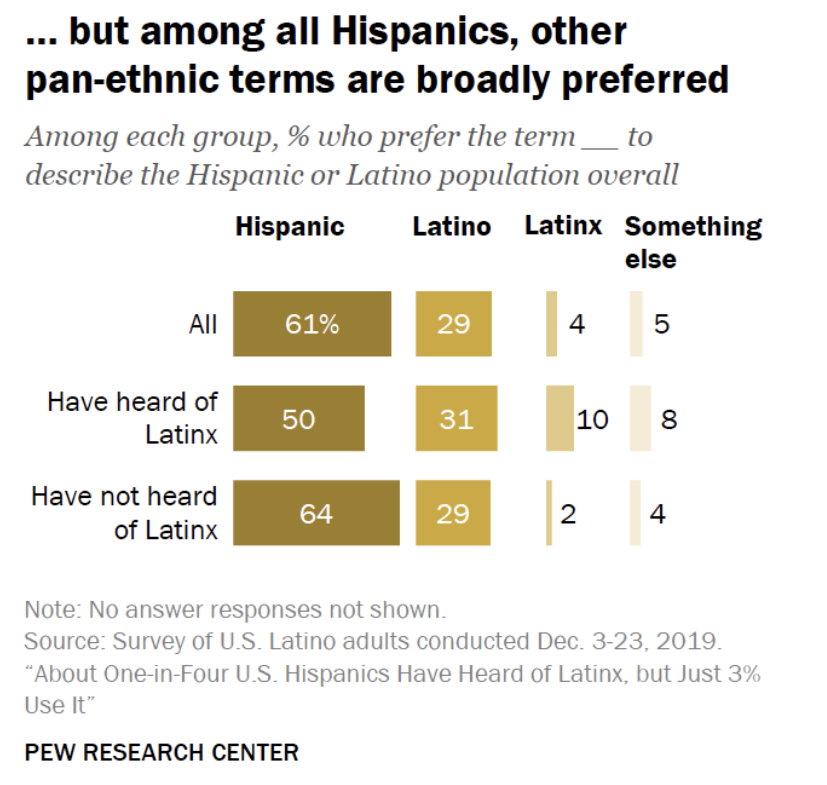Happy How-do-you-call-it Heritage Month
On knowing the “right” words.
An educational cartoon from Vox.
September 15th marks the beginning of Hispanic Heritage Month. Or is it Latinx Heritage Month?
Great question.
Let’s start with a very abbreviated primer on the various terms popping around the internet:
Hispanic = refers to a person of Spanish (from Spain) or Portuguese descent, but the term has been criticized for excluding those of indigenous, African, and mixed-race heritage.
Latino/Latina = a person of Latin American origin or descent, but has been criticized for binary gender rules that exclude those who don't identify as female (latina) or male (latino).
Latinx = invented as a gender-neutral alternative to "latina" or "latino", "latinx" has gained popularity as a more inclusive term. However, the term is also criticized by Spanish-speakers as an anglicization (the letter "x" rarely appears at the end of words in Spanish).
Latine = another gender-neutral alternative to latino/latina, more popular in Spanish-speaking countries, but less-recognized in the US.
In practice…
In practice, 50% of adults who identify as Hispanic or Latino don’t have a preference between the two terms, and only 23% have even heard of the term “Latinx”. Less than 3% actually use it.
For my data-lovers, here is some intel from the Pew Research Center:
So what's the answer?
Trick question.
Taking meaningful action to support our community (and all people of color) is more important than what you call us (overtly offensive terms excluded, of course).
What really matters: don’t let language hold you back
In my work with leaders, I see a lot of fear around saying the “wrong thing” or using the “wrong term” and accidentally offending or, worse, getting #cancelled. This fear holds too many people back from engaging with anyone who looks or sounds different from them.
Language will continue to evolve, and the debate over which term is best and most inclusive will continue. Don't let fear of using the wrong term hold you back from supporting and engaging with your hispanic/latino/latina/latinx coworkers (or anyone at all).
And, when in doubt about which term your colleague may prefer...just ask. Doing so with genuine curiosity and respect can actually be a big step towards inclusion; it shows an interest in learning about our cultural identity and a commitment to ensuring we feel comfortable (and valued) at work.
If I can impart one piece of wisdom this However-you-want-to-call-it Heritage Month, it’s this: having a conversation is almost always more important than having the right words.
For the curious…
Latinx Terminology Guide | A glossary from Palomar College
A practical guide to the definitions (and debate) around all the major terms related to Hispanic/Latino/a/Latinx/indigenous culture.
The Invention of Hispanics | Latino USA | 5-min listen
Before the 1970s people of Latin American origin were classified as white. Author Cristina Mora tells Latino USA how the Census Bureau, activists and Univision created the Hispanic category
Can We Please Stop Using ‘Latinx’? Thanx. | Medium | 3-min read
A strong opinion on the term Latinx, and some thought-provoking context. From the author: "Gender inclusivity is important, but so is acknowledging our indigenous origins."


